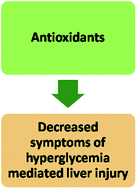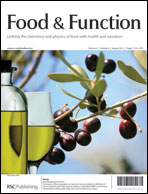The role of antioxidants and other agents in alleviating hyperglycemia mediated oxidative stress and injury in liver
Abstract
Several antioxidants and agents having similar antioxidant effects are known to exert beneficial effects in ameliorating the injurious effects of hyperglycemia on liver in different diabetic in vitro and in vivo models. The review deals with some of the agents which have been shown to exert protective effects on liver against hyperglycemic insult and the various mechanisms involved. The different classes of agents which protect the diabetic liver or decrease the severity of hyperglycemia mediated injury include flavonoids, catechins, and other polyphenolic compounds, curcumin and its derivatives, certain vitamins, hormones and drugs, trace elements, prototypical antioxidants and amino acids. Some of the pronounced changes mediated by the antioxidants in liver exposed to hyperglycemia include decreased oxidative stress, and alterations in carbohydrate and lipid metabolism. Other mechanisms through which the agents ameliorate hyperglycemia mediated liver injury include decrease in oxidative DNA and protein damage, restoration of mitochondrial structural and functional integrity, decrease in inflammation and improved insulin signaling. Thus, antioxidants may prove to be an important mode of defense in maintaining normal hepatic functions in diabetes.


 Please wait while we load your content...
Please wait while we load your content...